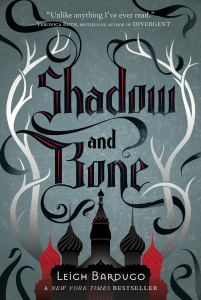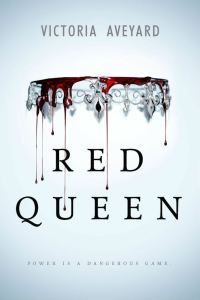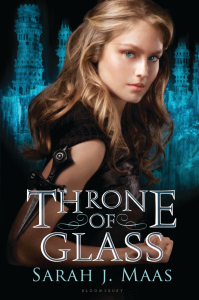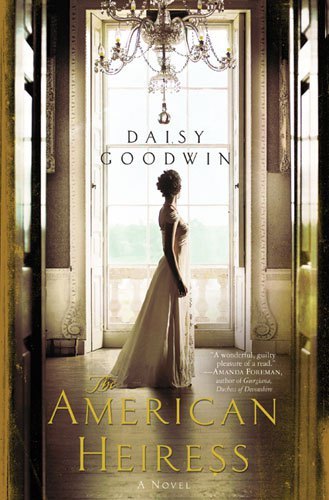Mariella Hunt's Blog, page 40
January 23, 2016
Review: Shadow and Bone by Leigh Bardugo
 In Shadow and Bone, we meet Alina Starkov. Orphaned as a baby, she’s lived a quiet childhood alongside her best friend Mal. They did everything together until he became a Tracker and his focus shifted to outdoor activities, creating a divide between them.
In Shadow and Bone, we meet Alina Starkov. Orphaned as a baby, she’s lived a quiet childhood alongside her best friend Mal. They did everything together until he became a Tracker and his focus shifted to outdoor activities, creating a divide between them.
Alina hasn’t recovered from this separation. Even when they both join the army, Mal’s popularity among soldiers and women causes her unrest. Not only is she mildly jealous, but she feels he’s known his calling all along while she followed him blindly—until their troop crosses the Unsea, a cursed land shrouded in darkness.
On this journey, Alina discovers she’s got the ability to summon light. This is a rare ability, even for the Grisha—people with gifts like control over wind or water. None have her ability to summon light from nothing!
Only one Grisha has power equal to hers in rarity. The Darkling summons shadow, like Alina summons light. He is respected and feared by everyone; though he works for the king, the Darkling is the one they fear in the Little Palace.
Alina has caught his attention, so he takes her in for training. He watches her power develop, impatient for her to reach full potential, and later we learn he’s got a motive. If Alina keeps training for him, her power will cease to be hers.
The Darkling has been sending parties to find a magical stag. If caught, the stag’s antlers will create an Amplifier that’ll increase Alina’s power…for his purposes. Upon learning he has plans for her, she escapes. In her flight she runs into Mal, and together they trek through the snowy land of Tsibeya.
Shadow and Bone ends on a note of escape and fear: Tsibeya can’t keep the Darkling away. He catches the stag and forces Alina to wear the Amplifier, essentially claiming her power for his purposes. But is there a chance she can use her ability to get away?
I found Shadow and Bone to be a slow read at first. The story didn’t sweep me away until Alina was captured for her ability. Even the slow scenes were a treat to read, because Leigh Bardugo has a gorgeous style. She painted pictures for me without getting too wordy; the dialogue provides satisfying insight on characters’ personalities.
Having read the second book, Siege and Storm, I realize the worldbuilding in Shadow and Bone lacks a bit. Don’t let this discourage you from trying the book; the series gets better with each installment.
Bardugo has become one of my favorite authors! Shadow and Bone is a tale worth reading, sweeping readers into a cold, snowy dream. Give it a try if you like fantasy and worlds where power takes part in everyday life, inciting greed and darkness—but also awakening fighting spirits.
Filed under: Book Reviews Tagged: 5 stars, book review, leigh bardugo, reading, shadow and bone, siege and storm








January 21, 2016
Artist Cait Potter on Exploring Different Crafts
Some painters transform the sun into a yellow spot, others transform a yellow spot into the sun.
Pablo Picasso
Picasso’s quote comes to my mind when I ponder two drawings by artist and writer Cait Potter. They’re among my favorites, the titles creating a parallel: Her fish is titled No Ordinary Bird, and the bird (displayed later in this article) is No Ordinary Fish.
What caught my eye about Potter’s work were the questions they prompted. Is it a bird, or a dragon? Is it a mix of the two? With art it often isn’t about what a subject is, but the emotion a piece evokes. Cait’s art made me wonder, so I asked about her creative process.
 No Ordinary Bird
No Ordinary Bird
When did you start drawing? Was it an urge you’ve always had lurking, or did it wake up one day?
Start of last year, I was going through some really rough stuff and when I was in the hospital I was really bored and it just kinda clicked. It was what I wanted to do; I stole a few magazines from the trolley and drew all over them. Tracing and copying the faces of the models. I had a sketchbook at home and I got it out as soon as I got home. I just went from there and it’s been a really good outlet. I think I was really just itching to try something new, I wasn’t inspired, I was really down and I’ve always been really visual.

Can you name three things that influence your visual art?
Music, I’m a huge fan of music, I used to play a couple of instruments but now I just do the listening, maybe playin isn’t for me, maybe I’ll pick it back up in a few years. Who knows? I’m content with simply expanding my music taste and supporting local musicians’ atm
Movies, I got told once that I watch too many of them but now, I disagree, I think that movies have helped me become the writer and artist I am today. Rocky horror picture show will probably be one of my all-time favourites, along with Velvet goldmine. I’m a huge fan of b-grade and experimental films, it’s honestly something I want to get into making.
Photography. I love looking at photos, no matter how crap they are, give me experimental photography, give me interesting photos of random things, idc I’m about it.
 No Ordinary Fish
No Ordinary Fish
Are your drawings tied to your writing in any way? Do you ever consider a drawing truly done?
My art is very tied to my writing; I’m often drawing things based off of my writing or vice versa. I don’t really know tbh, I just do both when I’m inspired.
I hate it when drawings are done, you kinda just know when to stop, you just think, yeah this is done, but I get attached to my drawings while I’m drawing them, I hate when I’m done. Style wise, I don’t think a drawing is ever done because I know that if I left it and then came back to it a week later to finish it could be totally different then whatever it was in the beginning. Maybe I’m never finished a drawing, maybe I just get bored and never finish anything.
What advice do you have for someone who wants to draw, but hesitates to try a new art form?
Just do it, even if what you draw is crap. Don’t worry about the outcome enjoy the process, draw cause it feels good to draw not cause you like what you draw.
 Find out more:
Find out more:
Cait Potter is an 18 year old artist, writer and photographer. She is an art student who has written three chapbooks.
Find her on Instagram and Pinterest, or visit her blog.
Filed under: Guests Tagged: art, cait potter, drawing, Guests, special feature, writing








January 20, 2016
Guest Post: Setbacks and Opportunities
 I used to live a twenty-minute drive from a massive, sandy beach. It was never warm there, never suited for lounging and sunbathing. It was always windy, and the north Atlantic water was frigid even on the warmest days. But it was a lovely spot for searching for sand dollars.
I used to live a twenty-minute drive from a massive, sandy beach. It was never warm there, never suited for lounging and sunbathing. It was always windy, and the north Atlantic water was frigid even on the warmest days. But it was a lovely spot for searching for sand dollars.
Sometimes I’d find one within a few minutes of hunting. Other days I seemed to be out of luck, and I’d give up quickly. But over time, I discovered something interesting: If I kept looking, if I kept my eyes open and had faith that I would stumble on something wonderful, a treasure always appeared. Usually it was the sand dollar I’d been hunting for, and I made it my goal to come home with one every time we visited the beach. But there were others. Beautiful moon snail shells. Purple mussels, and narrow razor clams. Yellow snail shells so tiny I could fit ten on my littlest fingernail.
But I only found those treasures because I looked for other opportunities while I was on my mission. If I’d only watched for circles, the other shapes might have slipped by.
It’s a lesson that’s come in handy for me many times. I’ve learned to keep my eyes and ears open, taking in information even when it doesn’t relate to what I think I should be searching for. It’s how I stumbled on the world of indie publishing while I thought I should be researching agents and queries, and it changed my life.
Opportunities are out there, but we have to be ready to spot them.
Sometimes the opportunities come directly from setbacks. They can be the hardest to see, but can also be the most rewarding.
During the production stage of my third book, Sworn, I thought I had things under control. I’d set reasonable deadlines for myself, left lots of time for revisions before editing and after, and felt confident that I had my proverbial ducks in a row. As I’d scheduled things, edits would be back by September, just in time for the kids to go back to school. I’d work my butt off, and have things ready to go by Christmas.
And then there was an unexpected delay on my editor’s end, and it turned out that while I still had the first editing slot in the month, it would start several weeks later than anticipated. I’d be sending the book out to him when I had hoped to be getting it back.
It seemed like a huge setback, and left me in a bit of a bind as to what to do with myself while I waited to get it back. Three weeks wasn’t enough time for me to start drafting a new novel, and I didn’t really feel like stepping away from that fictional world while I waited to dive back in with edits. I was frustrated, a little panicked at the idea that I wouldn’t have the book ready for when I’d hinted I would.
But then I started looking for the opportunity. Instead of sitting around and moping, being upset about something that no one had any control over, or wasting my time, I poked through my idea notebook for something else I might tackle.
So I wrote a prequel novella, just to keep my head in the world of my books. And what started out as an interesting exercise in getting to know a difficult and somewhat mysterious character turned into a 28,000 word novella, drafted in four days. A doomed romance, intense and beautiful (and ultimately heartbreaking, for anyone who has read the Bound trilogy). I wrote and revised it while Sworn was with my editor, and sent it to another editor who was able to fit the small project into her schedule.
And now that little side-project is with beta readers, and will be going out to my newsletter subscribers as a Christmas gift, a thank-you for the incredible support they’ve shown while waiting for me to finish the trilogy. The big novel will be out at the end of January, and in the meantime, my readers have a little fuel to add to the fire of the story.
Maybe not every cloud has a silver lining, but so much depends on whether we react to minor disasters by shutting down or by searching for the opportunities.
An editor completely ripping a book apart is a blow to the ego, but it’s also an opportunity to make our work so much better. Rejection by an agent or editor might lead us to looking into opportunities we might not have considered otherwise. Unkind words from readers can help us focus on what’s important to us about our work, and help us understand who we are (and aren’t) writing for.
So this is my goal, the thing I want to work on in the coming year. When things go badly from here on out, when the monsters jump out of the closet and make me want to cry, when I fall flat on my face in front of a crowd, I now have a plan. I’ll give myself time to be upset, to lick my wounds and tend to my bruised ego.
And then I’ll look for the opportunity, believing it will always be there if I look hard enough. Maybe it won’t be what I expected to find, but I believe there is always a beautiful treasure out there somewhere, if only I look hard enough.
Kate Sparkes is the Amazon and USA Today best-selling author of the Bound trilogy (Mature YA Fantasy). She lives in Newfoundland , but spends most of her time exploring strange lands from the comfort of her office. Visit www.katesparkes.com for details on her work, upcoming releases, social media connections, and to sign up for her newsletter and grab some free stories.
Filed under: Guests, Stray Thoughts Tagged: guest post, kate sparkes, setbacks, writing








January 17, 2016
Review: The Red Queen by Victoria Aveyard
 The Red Queen was one of many books I had put off reading because of its popularity. However, by the time I finished, it stood out in my mind as a storm! Emotion of the darkest nature gathers in this story to end in chaos.
The Red Queen was one of many books I had put off reading because of its popularity. However, by the time I finished, it stood out in my mind as a storm! Emotion of the darkest nature gathers in this story to end in chaos.
Initially I found the plot predictable, but emotional conflict kept me turning the pages. I see why so many people enjoyed the book, because though dystopia isn’t my genre of choice, I couldn’t put down The Red Queen.
Mare is of Red blood, meaning she’s part of the lower branch of society. Reds exist to work for the Silvers, whose special abilities give them distinction from Reds, and the ability to discriminate.
It’s a very typical, off-balance dystopian society. Silvers are powerful and rich, Reds do the hard work. Reds are drafted to the war if they don’t learn a trade; when killed at war, Reds are often disposed of in mass graves, unmarked and never to be left a flower.
Mare’s struggle at the beginning of the book to help her family make a living wins her over to us as a character. She lives as a pickpocket, hoping to gather what she can for her family before she is deported.
Her life changes when one of her attempts goes wrong: The person she’s tried stealing from is Prince Cal, who we later learn escapes the palace all the time. Instead of having her sent to prison, he gives her more money than she’s stolen in her life. The next day they’re at her door, telling her they want her at the palace.
Cal has gotten her a job as a servant for the royal family. She’ll be paid well and her family will be taken care of. It might have ended perfectly if Mare had started her job on a different day.
She arrives in time for Queenstrial, an event where young Silver ladies show off their powers, demonstrating what they could offer the crown should they marry the Prince. But Mare wrecks their show when, in a moment of chaos, she falls to the ground—and from her begin to emerge waves of purple lightning.
Mare, a lowly Red girl, has done the impossible—and at Queenstrial, of all places. She has an ability no Red should have. The only way for the royal family to cover up this blunder is changing her identity.
Though she’s pretending to be a Silver, Mare isn’t respected like the other Queenstrial girls. She’s forced to change her name and past in order to survive. To seal her fate, she’s betrothed to the youngest prince, Maven.
This is where The Red Queen gripped me. I wondered who the real prisoner was, because towards the end nothing was as it seemed—I couldn’t call it predictable anymore! I closed the book with adrenaline rushing through my veins.
The Red Queen could be compared to other popular novels, but I think it has the typical traits for popular dystopia, which isn’t a bad thing! We close the book wondering if Mare’s destiny can ever be positive; after all, she’s one girl facing a society the queen has cleverly lied to. When you read the book, you’ll see what I mean.
The Red Queen earned its popularity. For someone who rarely picks up dystopia, I’m glad I gave it a chance. I hope Mare has her justice carried out and hearts will be healed, but the world they live in is so tumultuous. All I know for sure is that I’m reading the next book!
Filed under: Book Reviews Tagged: book review, dystopia, reading, the red queen, victoria aveyard








January 15, 2016
What Professor Snape’s Death Tells us about Fiction
 Your news feeds are full of Alan Rickman—pictures, quotes, and tributes. Perhaps you’re tired of it, which considering the volume of posts would be understandable, but allow me to explain what it means in my point of view.
Your news feeds are full of Alan Rickman—pictures, quotes, and tributes. Perhaps you’re tired of it, which considering the volume of posts would be understandable, but allow me to explain what it means in my point of view.
The Rickman post I’ve seen going around most is this:
“Actors are agents of change. A film, a piece of theater, a piece of music, or a book can make a difference. It can change the world.”
He’s right.
A lot of people aren’t missing him as the actor Alan Rickman. Many of my friends are mourning the loss of Professor Severus Snape, who despite being a fictional character—and not one people liked all the time—played a huge role in our childhood dreams.
As a storyteller, an ‘agent of change,’ I’m sure he knew this would happen. He must have been familiar with the sensation of attachment to a fictional character, one who to so many people was real.
This does not only apply to Harry Potter.
I’ve always been fascinated by the effect a good story has on an audience. Not everyone understands why we attach to fictional characters, more so than the actors who play them. I’ll admit I don’t follow the actors in movies, but love and respect what they represent. They become faces that get us through difficult times; we look forward to seeing them at movie premieres.
A film, a piece of theater, a piece of music, or a book can make a difference. It can change the world. No one understands this better than fandoms, communities who gather because they love the same stories. We stick together because we have a special magic in common, not just the magic found in Harry Potter!
Members of fandoms are familiar with the looks we get when we gush over a favorite movie or cry over the character’s death. We are strange to the rest of the world who consider fiction a waste of time—and we don’t care what they think, because fandoms are huge families.
Judgment from ‘normal people’ can’t budge us. It makes us stronger, steeling our bond, enforcing our love for something fictional.
If you ask me, there’s nothing fictional about the love we feel for these dreams, the stories told, and the actors behind them—even when we don’t recognize them by name.
I didn’t think much when I heard Alan Rickman had died. It wasn’t until they played a clip of him as Professor Snape that I became sad—because he was, and is, Professor Snape. I felt like I’d gone personally to Hogwarts and one of my teachers passed away.
Many will find this sentiment silly, but more yet will agree. This is the power of storytelling, fandoms, dreaming.
Alan Rickman’s death inspired this blog post, but I didn’t follow him as Alan Rickman. I followed him as Professor Snape, the favorite teacher to many. I never followed him as an actor, but he was part of my life and those of many other Potterheads.
So tell me fiction isn’t real. Tell me the sadness so many now feel is fake, an irrelevant waste of time. I disagree! Fiction might not be tangible, but it’s made so many people whole, creating beautiful friendships and unforgettable moments.
RIP, Alan Rickman, and thank you for giving us Professor Snape.
Filed under: Reading Tagged: alan rickman, fiction, harry potter, literature, professor snape, reading








January 14, 2016
#wordstorm: looking at flowers

At the grocery store yesterday, I photographed many flower arrangements. It’s not spring yet, but flowers remind me of what’s to come! Time flies, and soon it will be warm. There’ll be more flowers, ladybugs, even bees (which I hate.) I’ll be able to wear shorter sleeves.
There’ll be a smell of new in the air.
A year ago today, Dissonance hadn’t yet been published. I was in the process of completing edits and honestly, I might not have published it had people not encouraged me. To put your book out for others to read and go from writer to author–that’s scary.
Sometimes I still can’t believe I went through with it, that people have read and enjoyed it.
That smell of new in the air could be new stories (I’m working on them,) new dreams, new friends. Springtime is exciting; there’s always a surprise! I look forward to sitting outside with my laptop and finishing Serenade so you can read it.

Winter isn’t bad, either. Those moments I spent huddled in bed with frozen toes were useful for meditation and plotting. I realized how much I’ve achieved since the book release, things I hadn’t dreamed of when Dissonance started out as a mermaid story.
I thought about new friends I’ve met, marveling that some have Dissonance on their shelves!
There’s beauty in the new and the old–the problem is finding balance, learning to anticipate the future without losing sight of the past. There are lessons to be learned and memories to be kept, even as we hold our breath for May.
I’ve never been good at living for the present (that’s something I’m working on.) However, I do feel that when I published Dissonance, I embarked on the path always meant for me. I started my career as an author, and things will only get better with time!
This year, I will get another potted plant and put it on my window. I’ll embrace the blessings I’ve been given since embarking on my path as an author. I thank every person who might take the time to read those 200 pages I worked so hard on.
Your time means so much to me.

New things emerge in the spring–friends, ideas, stories. I can’t wait to see what I’ll dream up in 2016–it’s a matter of controlling my procrastination. That way I can instead embark on more #wordstorms.
Those can lead anywhere, even to a new story more people will enjoy.
These flowers are for you, I hope you find them as beautiful as I did.
Filed under: wordstorms Tagged: Dissonance, journal, Serenade, spring, wordstorm, writing








January 12, 2016
Review: Throne of Glass by Sarah J. Maas

Throne of Glass has introduced me to one of my new favorite characters.
Celaena Sardothien—notorious assassin, world-famous for her dark deeds—is broken out of prison by Prince Dorian to participate in a competition to become the King’s Champion. There’s a catch, though: She has to pretend she’s someone else, a Lady Lillian with royal blood…a well-behaved lady.
Which poses a problem. You see, Celaena spends every waking moment of the day thinking of how to beat someone up, kill them, or escape. She’s been in prison long enough that her blood won’t settle into being a tame lady. She’s haunted by her experiences in the prison where she lived in crippling loneliness.
So even though she’ll fight for her freedom in this competition, she won’t behave.
Celaena is difficult to deal with but extremely likeable. She’s causing trouble for everyone from the Prince to the guard training her, but try as they might to keep a distance, they can’t stop liking her. It seems that in her rebellion she brought newness to the dull palace; this newness appeals to Prince Dorian and his friend, the Captain of the Guard, Chaol—which is also a problem, because they’re best friends.
She made me smile. Even when she tried to behave, her presence was cause for trouble. The other competitors were irate at having a girl play; court ladies were jealous of her closeness to Dorian. Celaena is a spark, making her presence known wherever she goes, for better or for worse.
Despite it all, though, she loves to read. Somehow that’s the detail that sealed her as unforgettable for me. Her mind and heart are in chaos, but she still loves a good book.
The worldbuilding was well done, to a point where I didn’t question things unexplained. This is a world of chaos with corrupt kings and dark monsters, but I managed to read it with hope because of the light brought by her friendships with Dorian and Chaol. (These friendships often got dangerous…#TeamChaol)
Best of all, romance was not the first thing in Celaena’s mind—she thought more of escape and violence. This is refreshing in a female main character. Of course she noticed when a certain person was kind or beautiful, but she didn’t act on trying to win them over.
She cared more about her freedom than romance, and for that I adore her.
I have the second book and I’m excited to start it, but don’t want to read this series too fast. Good things need to last! If you want a refreshing MC who’ll earn your loyalty from page one, read Throne of Glass.
It’s very popular, which is why I took my time to read it…but this book deserves its fame.
Filed under: Book Reviews Tagged: book review, books, reading, sarah j maas, throne of glass








January 9, 2016
Finding My Audience

Find your audience.
As a new author, I hear that advice all the time. The instructions given bother me. I don’t like the idea of my audience being prey to track via statistics, I don’t want to lose sight of my readers as people.
Even before I published Dissonance, I never wanted my readers to be numbers…I wanted to befriend them.
Though I’ve yet to unearth the secret of finding a huge audience, I feel better when I ignore the advice given. It’s more rewarding to establish relationships than posting ads with prices, insisting the book be read.
That tactic is necessary sometimes, but… I’ve wanted to be a storyteller all my life, and there was a vision I always had. I want to be friends with my readers. I even want to be friends with people who don’t adore my book!
The storyteller-audience relationship is not a buy-sell relationship. What called me to writing was feeling someone could trust me enough to hear my tale. I don’t want to flash numbers at people; I want to breathe words that’ll help them visit another world.
I haven’t been published long, but I’ve learned it’s far better to be a voice people trust than a voice trying to sell a story.
I’ve found some things do help. They all involve time and interaction.
First, find stories similar to yours. Read books you like to read, and you’ll meet people who like them too. It’s important to have things in common! Stay up-to-date in genres like yours, discuss these books with like-minded people. You’re more likely to interest people in your book if they feel you have similar tastes.
Second, it’s important to let readers know feedback helps. My audience is small and I love being able to tell them “in person” that, even if there were things they didn’t like about the book, I appreciate their taking the time to read. No honest writer can deny that praise lifts the spirit. It takes so much effort to write 200 pages; kind words help wash away hours of self-doubt.
Third, be someone else’s audience. Focusing on your own work for too long will isolate you. Build communities with other authors and encourage them, connect with people who share your goals. It’s hard to be a writer, and a blessing when others help you to your feet.
Storytelling as I see it is like a campfire with readers gathered to listen. It’s not a solitary activity, but a community of dreamers. This community takes effort to build, and you won’t make progress that way by leaving a link on Facebook hoping people will buy.
Readers want to know you. As a reader myself, I speak from experience.
My audience is small and I adore it. If it grows, I hope to continue finding ways to let readers know they matter. I am where I am because of these people who’ve taken the time to read my 200 pages.
Be a person, not a billboard. That’s how you build a loyal audience; that’s how you create relationships. It makes me feel more like a storyteller, the person I’ve wanted to be all my life.
Filed under: Writing Tagged: audience, books, indieauthors, indiebooksbeseen, writing, writing tips








January 8, 2016
Guest Post: “Write a book! It’s so easy!”

As I scrolled through my social media feeds I couldn’t help but see that another human being was thinking about writing a book. Granted, I had never expected this person to be a writer, but who was I to deny them this golden opportunity?
Then I saw it. IT. Staring me in the face, laughing like a crazed person as it sat there it in its wrongness, available for the eyes of so many people. The comment that can tear a writer’s sanity apart:
“You should write a book! It’s so easy!”
“write a book! It’s so easy!”
“It’s so easy!”
“so easy!”
“EASY!”
If you hear a high-pitched kind of whistle sound, just ignore it. It’s only my broken and agonized screams in the distance.
Let’s get something straight – in no way, shape, or form is writing a book easy. There is a lot more involved than just typing words out on a page. Plots. Characters. Worlds. EVERYTHING. You have to be an expert on all sorts of things in order to be a writer. Does that sound easy? If the answer that comes to mindis anything but “no” then we need to talk.
Writing is not for everyone. It is not the easy path or the get rich quick path. In fact, you could say that this is a path that just plain sucks sometimes. Non-novel writers just don’t get it. This post is for ther novelist, the writer of stories and creator of worlds. If you, the human being that is reading this right now – if you have decided that you want to be a writer, that you want to spend hours behind a computer screen, days spent researching, and rewriting, and editing – if that is the future you aspire to have, then you need to realize one very important thing: You are amazing.
There is no sarcastic undertone attached to those two words. I really believe that you are in fact the coolest person. Writing is an incredible thing. It is a complex and intricate thing. Fiction creates worlds and characters and lives and passion. It is behind heartbreak and inspiration. And that is what you’re doing every time you sit down at your computer or pick up your pen and paper. You are writing. You are giving words a deeper meaning. How cool is that?
Now, before you look at your screen and sigh, because you have not been writing, please don’t. And please know that being a writer does not mean you are required to write every day for X amount of hours. It doesn’t mean you have to reach a certain word count. Despite what people can say, writing is really hard to do sometimes. You may have nights where all you do is watch the cursor blink and blink and blink and blink against an empty background. You may have nights when you become inspired and write 10,000 words.
I have spent my fair share of nights doing both. It is awesome to do well, and that is okay to draw blanks. It is okay to question, to feel your heart wilt in your chest when you can’t manage even a few decent sentences. The fact that you’re trying is huge! It says to me that you are invested in your chosen craft, your chosen path. Whether you stare for hours or write 10,000 words, you’re driven to write. You want to write. Or maybe you don’t, but your body and heart and soul and whathaveyou compels you to create and write and dream up new worlds and lives.
So, be a writer. Be amazing. Be you. And if you ever have the misfortune to come across someone who thinks writing is easy, try really hard not to hit them. Instead, channel that rage into a great plotline.
#DoItForThePlotLine
Caity H is a twenty-something writer, living on a steady diet of homework and good tunes. In her spare time, she likes to procrastinate and binge watch TV shows. Writing is also high on her list of “favorite things to do.” If you want to follow this rad chick, her social media links are listed below. She posts funny things sometimes. Promise.
She had two novels available on Amazon–Hello, Honeybee and Hello, Handsome.
Follow her:
Facebook Twitter Amazon
Filed under: Guests Tagged: books, Caity H, guest post, writing








January 5, 2016
Review: The American Heiress by Daisy Goodwin

The American Heiress is reminiscent of Downton Abbey, described as a book for you to read while waiting on the next season. It follows the story of Cora Cash, a wealthy American whose mother is willing to do anything to get to the top of the social ladder.
The thing is, most of what Mrs Cash does to get her daughter a place in society seem to be for Mrs Cash’s own benefit; when readers realize this, we understand Cora even though she’s spoiled and obnoxious. She didn’t have freedom as a girl, and even when she marries a Duke she’s sealed into a different kind of imprisonment.
Caught with the gossiping upper class, Cora’s looked upon as different for being an American in English society. Even though she charms people, there’s something that keeps her inferior. She’s made it to the top, but those born with titles won’t fully accept her as one of them.
After marrying the Duke, Cora starts to break down; without her mother to make decisions, she’s left alone in a world where few respect her and even her husband behaves strangely.
The relationships were compelling; I found the settings engrossed me. Daisy Goodwin’s writing style is musical! It got me through the slower scenes because I wanted to read more of her words.
This book follows an “American princess.” We see her stumble through an enormous lifestyle change and promptly get back to her feet. By the end of The American Heiress we applaud Cora’s strength as she reasserts her dignity.
It’s a book I will read again; I’m won over by lovely writing. I enjoyed watching Cora grow from an obnoxious girl into a woman fighting a battle. I’d recommend it to those who love complicated romance, and those who seek novels in historical settings.
Filed under: Book Reviews Tagged: book review, daisy goodwin, Historical Fiction, reading, the american heiress











